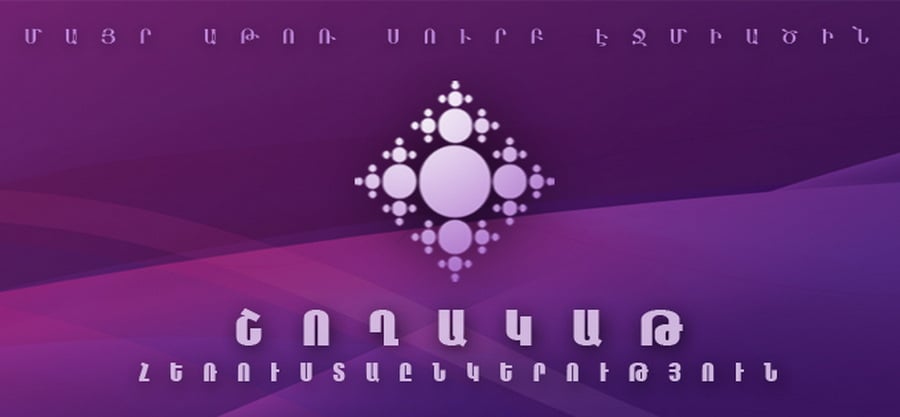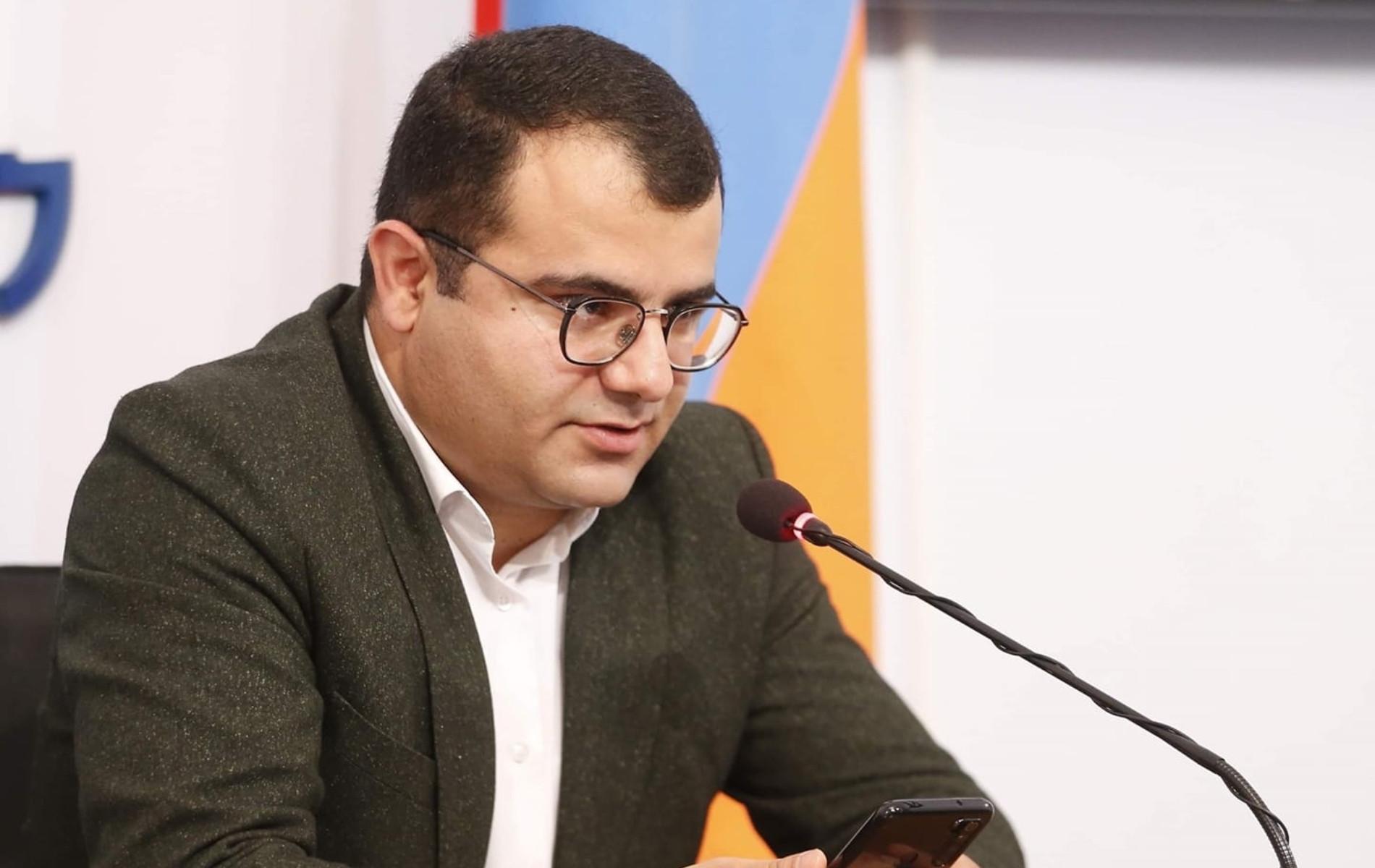In searching ways to get information from pubic authorities a journalist often faces a problem: who turn to – the press secretary or to the public relations office. How to get operative information!
“When you send an inquiry to the Information department or to the relevant unit, the answer to which you should receive at minimum five or maximum 30 days, you receive it 2-3 months later, or there happen cases that those inquiries are lost in the Staff of the Government”, Narek Kirakosyan, journalist from “Haikakan zhamanak” newspaper expresses his concerns.
According to the change in the “law on public services” adopted on March 23 of this year, in the public authorities should not have both a press secretary and head of the public relations department at the same time. The position of the latter becomes discretionary and with this law only one position is stipulated, which held by the press secretary. Vice-Speaker of the RA Parliament Arpine Hovhannisyan, who happened to make recommendations about the law, states, “Especially with persons holding a political office, be they ministers, the Prime Minister, Speaker of the Parliament, etc., from the functional perspective the press secretary and the head of the public relations department have usually conducted the same function.”
This is the reason that for receiving information a journalist often has to contact all the responsible persons. Usually the responsibilities of the press secretary relate to the head of the agency directly, and the functions of the public relations unit relate to the whole agency, including the head. According to Ani Smbatyan, press secretary of the acting RA Minister of Agriculture, “The main difference is the following: the work with the media is conducted by the press secretary of the minister, and the unit exercises the powers stipulated by law, in particular monitoring, answering “hot line” calls, organizing receptions by the minister or deputy-minister.”
According to the changes made in the “Law on public service”, in case the direct supervisor is changed, the press secretary holding discretionary position continues holding the position until a new appointment is made. This creates a problem especially in cases, when the head of the public relations department, who was hired through the civil servants’ contest and is protected by law, after taking the position of the speaker, becomes vulnerable. Vice-Speaker of the Parliament Arpine Hovhannisyan shares this concern, “There will be a certain painful stage from the perspective that many heads of public relations departments will not want to hold a position which they will be linked to an official…and it will be easy to dismiss them from work…”
At this moment, although the “Law on Public service” has come into force a long time ago, in 7 out of existing 17 ministries the old system is still functioning: they have a press secretary and a public relations department. These are։ the Ministries of Emergency Situations, Agriculture, Education and Science, Defense, Territorial Administration and Development, Economic Development and Investments, Transport, Communications and Information Technologies.
Currently, the heads of agencies not implementing the requirement of the law do not attach that much importance to it, while seeing the issue from a different perspective. Hakob Arshakyan, acting RA Minister of transport, communication and IT, is honest, “I have not though about it, however, in general I can say they speak a lot about optimization of our system; I can say that first of all we have optimization in terms of management.” Arsen Torosyan, acting RA Minister of Health is not aware of the requirement of the law, “This is the first time I have heard such a thing. I am sure that next year we will have structural changes, and I think then we will refer to that issue.”
Which are the preferred ways to contact officials and receive information? 11 out of 27 journalists who participated in the CPFE survey preferred first to get information by phone, 11 – through briefings and press conferences, only two people considered Facebook posts and live streams as primary, and two more gave preference to official inquiries. Journalists like individual, face to face contact with interlocutors. As a result of the survey, press releases by the agencies were considered acceptable but not primary, except for one case.
Anna Israyelyan, editor of “aravot.am”, compares the modus operandi of the previous and the current authorities, “Unlike previous authorities, which seemed to have the preference to work especially with a group of friendly media outlets, with the current authorities the impression is that they prefer to work with Facebook rather than with media outlets, and majority of the messages goes to Facebook. In that case, the press secretaries are wasting the tax-payers’ money.”
However, Anna Israyelyan does not think that the press services should be closed down, “The international experience proves that it is hardly the right way as, to put it mildly, they are not the first in the whole world who created the way of contacting and communicating with people through facebook live streams or through social media. For example, Donald Trump is very active in Twitter, but that does not mean that the press service of the White House does not work and does not spread messages.” For a journalist the important thing is to receive an answer to his/her question, and the change in the law created difficulties not only inside the agencies, but also in the work of the media.
Anna Israyelyan remembers, “When during the four-day April war there was a day that Artsrun Hovhannisyan went to Artsakh and for safety reasons he turned off his phone, we did not have anybody else to receive information or to check some news.”
For Narek Kirakosyan, journalist from “Haikakan zhamanak”, it is desirable to have both the press secretary and the public relations department, “When you cannot call one of them, you are able at least to get in touch with the other: in this respect for me as a journalist, it is advantageous, however I do not know how advantageous it is for the state to have a secretary and a head of a public relations department.”
The data on the violation of the CPFE right to receive and disseminate information about 3 quarters of 2018 show that even in the case of the smallest percentage the journalist turns to court. The “Union of informed citizens” is especially active in this matter, which although won in most of the court cases, it was not able to sanction anyone administratively.
Daniel Ioannisyan, program coordinator of the “Union of informed citizens” NGO thinks that in case of enrolling good personnel the merging of two positions can work quite well, and it will be possible to avoid putting responsibility on each other, “If the merging of those two positions takes place effectively, and it becomes clearly known that a given person is responsible for providing information, that will enable us not only to send the inquiry to that particular person, but also who to charge in case of not providing information thus to make that system work.”
If journalists come across difficulties when asking for information, then what we can expect in case of a common citizen. Unless there are specific persons in all the public bodies responsible for the inquiries, there will not be any responsible attitude towards providing information.
HASMIK BUDAGHYAN
CPFE expert









